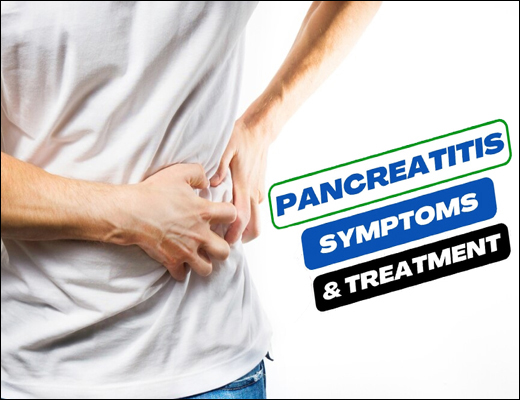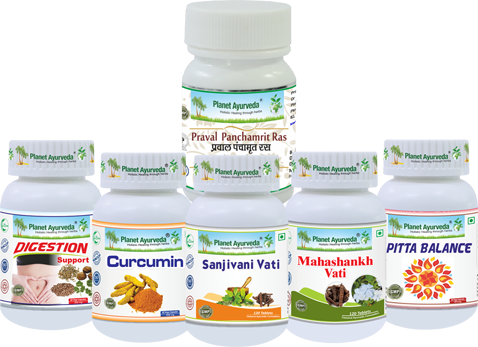Ayurvedic Treatment for Pancreatitis with Herbal Remedies
Abstract
Pancreatitis is an inflammation of the gland of the pancreas. It is a life threatening disorder and it can be acute or chronic and can present as one in many ways. Acute pancreatitis can present as an emergency and chronic pancreatitis is a prolonged chronic and lifelong disorder which can result in the development of fibrosis in the pancreas. Clinical findings of acute pancreatitis are typically limited to epigastric or right upper quadrant pain whereas the clinical findings of chronic pancreatitis are wide-ranging and may include abdominal pain along with signs and symptoms of pancreatic endocrine and exocrine insufficiency. The prevalence rate of pancreatitis in India is 7.8 per 1,00,000. The rate is 8.5 for men and women respectively. Overall 10- 20 year survival rates are estimated to be 70% and 45%, respectively Understanding the initial stroke, classification, and prognosis are all factors of utmost importance as it relates to the management of patients suffering from this disease. In this article we will discuss the signs and symptoms, causes, classification, and management of the pancreatitis as per modern and Ayurveda aspect.

Introduction
Pancreas is an abdominal glandular organ which performs both digestive (Exocrine) and hormonal (Endocrine) functions. It is considered as one of the most distressing and disturbing conditions in the abdomen. Pancreatitis occurs when pancreatic juices become activated in the pancreas instead of the small intestine. It is divided into two conditions that are acute and chronic in which acute condition is considered as an emergency because it requires an emergency treatment whereas chronic pancreatitis is considered as a lifestyle disorder which persists from a long time that is about more than 6 months of duration and there is also formation of fibrosis in pancreas. It usually presents with pain in the upper abdomen that also radiates to the back, vomiting, fever, etc. The symptoms may vary patient to patient and it may be mild to moderate to severe. The most common causes of pancreatitis are consumption of alcohol, Cholelithiasis (gallstones), infection and various medications.
Pathology
Pancreas is an abdominal organ that is located behind the stomach and is surrounded with some other organs like liver, spleen and small intestine. It performs both endocrine and exocrine functions. There are two major enzymes that are involved in the protein digestion; they are chymotrypsinogen and trypsinogen. Pancreas contains a group of cells known as pancreatic acinar cells. Pancreatic acinar cells produce digestive enzymes and pass them to the small intestine through the pancreatic duct. In pancreatitis, there is inflammation of the gland parenchyma of the pancreas and there is damage to acinar cells and they release digestive enzymes consisting of amylase, in adjacent structures of the pancreas. And because the enzymes are not released into the pancreatic duct and damage the cells and blood vessels in the surrounding area, there is an increase of amylase Amylase levels in the blood.
Classification
There are mainly two types of pancreatitis. They are:
- Acute Pancreatitis – Acute pancreatitis is considered as a temporary condition because it lasts for less than 3 months. It is a non- bacterial inflammation of the pancreas that results from release of enzymes. Although the symptoms are mild and it will recover within a week, but in some cases it becomes severe and can also lead to serious complications.
- Chronic Pancreatitis – Chronic pancreatitis is a prolonged condition that can last upto 6 months. It gets worse with time. It is associated with irreversible changes like pancreatic fibrosis and there is also loss of exocrine and endocrine functions. In most cases, it develops due to the long term use of ethanol. In early stages, it is an acute condition but due to the repeated episode of pancreatic injury it will lead to fibrosis.
Causes
There are several causes of pancreatitis, some of them are:
- Most common cause of pancreatitis is prolonged abuse of ethanol.
- Certain medications can lead upto pancreatitis.
- Cholelithiasis – because there is obstruction of the pancreatic duct due to the gallstones.
- Autoimmune changes
- Some endoscopic procedures such as sphincterotomy, ERCP (Endoscopic retrograde cholangiopancreatography), etc.
- Trauma or injury
- Some Hereditary conditions
Signs and Symptoms
The first and main symptom of pancreatitis is pain in the abdomen. Some other symptoms are:
- Vomiting
- High fever
- Dehydration
- Indigestion
- Loss of appetite
- Weight loss
- Deficiency of pancreatic juices and hormones
- Fast and slow heart rate
Diagnosis
There are several tests to diagnose pancreatitis. They are:
- Blood test (CBC) – Hb% may decrease due to hemorrhagic pancreatitis.
- Serum Amylase Test – Usually the amylase levels are high levels.
- Serum Lipase Test – Usually the amylase levels are high levels (More in alcoholic pancreatitis).
- Ultrasonography – To see collection of fluid, gallstones.
- Computerized Tomography – To see necrosis, fluid collection.
- Magnetic Resonance Imaging – To see necrosis, fluid collection.
Treatment of Pancreatitis
Panchakarma procedure is considered as the main procedure for the detoxification of the body. There are several procedures that can be done in pancreatitis.
- Virechana (Purgation Therapy) – Because in pancreatitis, there is predominance of pitta dosha, so to balance the pitta dosha, virechana therapy is considered the best.
- Basti (Medicated Enema) – Medicated enema with Yashtimadhu is very effective in pancreatitis because it helps in soothing and also flushes out the toxins.
Ayurvedic View
In Ayurveda, pancreatitis can be correlated with “Agnashyashotha”
Here “Agnya” means pancreas and “Shotha” means inflammation.
The prevalence of the dosha can be understood based on the etiology and complaints of the patients. In Ayurveda, Pancreatitis is considered as a “Agni Vikar” (Digestive fire disorder), that controls the process of digestion in the body. According to Ayurveda, in every disease there is an imbalance of three dosha (Vata, Pitta and Kapha) and along with this there is accumulation of toxins (Ama) in the body. An imbalance of tridosha, and ama accumulation, can interrupt the functions of pancreas and that can lead to inflammation of pancreas.
Herbs For Pancreatitis
In ayurveda, there are various herbs that work well in pancreatitis. Some of the best herbs for pancreatitis are:
- Turmeric – Because of its anti-inflammatory and antioxidant properties, it helps in reducing the inflammation of the pancreas and also helps in flushing out the accumulated toxins from the body.
- Yashtimadhu – Because of its anti-inflammatory and soothing properties, it can help in reducing the inflammation of pancreas and also helps in relieving the discomfort.
- Aloe-vera – Because of its healing and cooling properties, it can provide soothness to the inflamed pancreas due to its pitta pacifying properties.
- Triphala (Haritaki, Bibhitaki and Amalaki) – It helps in flushing out the accumulated toxins (ama) from the body thus reducing the pain and inflammation.
Herbal formulation by Planet Ayurveda for Pancreatitis
Planet Ayurveda is a good manufacturing practice ayurvedic company that offers herbal products made by Ayurvedic recipes. In modern, pancreatitis is managed with symptomatic treatment and there is no relief with conservative management, surgery is the last option but with Ayurveda it is well managed with Ayurvedic herbs. In Planet Ayurveda there are several herbal formulations that work effectively in pancreatitis. They are:
- Sanjivani Vati
- Mahashankh Vati
- Praval Panchamrit Ras
- Curcumin Capsules
- Pitta Balance
- Digestion Support
Products Description
1. Sanjivani Vati
Sanjivani vati is a polyherbal formulation which contains Shunthi (Zingiber officinale), Pippali (Piper longum), Amalaki (Emblica officinale), Vidanga (Emblica ribes), etc. It helps in balancing vata and pitta dosha. It has a calmative action that helps in pancreatitis. It also helps in improving digestion and also helps in secretion of digestive enzymes. It possesses anti-inflammatory properties that help in reducing the inflammation of pancreas.
Dosage: 2 tablets twice a day after meals.
2. Mahashankh Vati
Mahashankh Vati contains various herbs such as Shunthi (Zingiber officinale), Pippali (Piper longum), and various salts like rock salt, black salt, sea salt, etc. It helps in managing the symptoms of pancreatitis like indigestion, abdominal pain, flatulence, etc. It also helps in balancing vata and pitta dosha.
Dosage: 1 tablet twice a day after meals.
3. Praval Panchamrit Ras
Praval Panchamrit Ras is classical ayurvedic preparation prepared by using Ayurvedic calcium compounds. It helps in balancing pitta dosha due to its coolant properties that helps in pancreatitis. It also helps in alleviation of abdominal burning sensation. It helps in maintaining the healthy digestive system and also helps in good digestion.
Dosage: 1 tablet twice a day after meals.
4. Curcumin Capsules
Curcumin capsules contain standardised extract of Haridra (Curcuma longa). It possesses anti-inflammatory and antioxidant properties that helps in reducing the inflammation of the pancreas and also helps in flushing out the toxins from the body. It helps in expelling the excessive amount of Pitta out from the body with purgation (Pitta Rechaka).It also helps in balancing the three dosha (vata, Pitta and kapha).
Dosage: 1 capsule twice a day after meals.
5. Pitta Balance
Pitta Balance capsules contain several herbs such as Kaharva pishti, Akik pishti, Mukta Pishti, Jaharmohra pishti, etc. It helps in pacifying the increased pitta dosha. It also helps in providing the cooling effect to the body and also maintains a healthy digestive system. It also helps in reducing the symptoms like burning sensation, heartburn due to pancreatitis.
Dosage: 1 capsule twice a day after meals.
6. Digestion Support
Digestion Support capsules is a blend of herbs such as Triphala Haritaki (Terminalia chebula), Bibhitaki (Terminalia billerica) and Amalaki (Emblica officinalis), Jeerak (Cyminum cuminum), Saunf (Foeniculum vulgare), etc. It helps in removing the excessive heat from the body due to its coolant properties. It also helps in stimulating the secretion of digestive juices, enzymes. It also helps in managing the symptoms of pancreatitis like gas, indigestion and loss of appetite.
Dosage: 1 capsule twice a day after meals.
Conclusion
In an era, where modern medicines are evolving everyday, Ayurveda is proof of the knowledge of ancient cultures. In pancreatitis, modern medicine approaches symptomatic treatment but Ayurveda manages the conditions by knowing the exact root cause of the disease. With proper diet, lifestyle and herbal formulations people with pancreatitis can improve their life.




